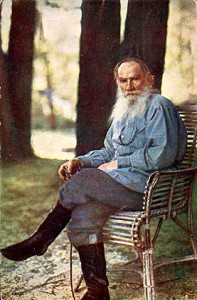 A recent (completely fictional) email to Art Scatter began: “Sweet Mother of the Muses, can’t you get over the Shakespeare festival already?” Art Scatter was gob-smacked. Over the Shakespeare festival? Who would want to get over the Shakespeare festival? We are just beginning to sharpen our dull thoughts on the subject. We might even go back this fall! When it isn’t so hot and crowded! So, we aren’t promising anything. But we can already feel our collective attention wandering.
A recent (completely fictional) email to Art Scatter began: “Sweet Mother of the Muses, can’t you get over the Shakespeare festival already?” Art Scatter was gob-smacked. Over the Shakespeare festival? Who would want to get over the Shakespeare festival? We are just beginning to sharpen our dull thoughts on the subject. We might even go back this fall! When it isn’t so hot and crowded! So, we aren’t promising anything. But we can already feel our collective attention wandering.
According to the advanced metrics generated by the advanced spyware technology affixed to this site, which, by the way, never really add up, we know that more of you are joining us here than ever before. We now may have enough for a couple of tables of bridge! But from those same metrics (don’t you just love how “metrics” gets thrown around willy-nilly these days? When all we need is “numbers”?), though, we have determined that we need to re-sell a few posts that were washed out to sea in the flood of confessions about what books you haven’t read and the thousands of words we have devoted to the Shakespeare festival.
So, hot links to our OWN POSTS!
Peter Nadas We couldn’t be more excited about this Hungarian writer, some of whose work has just been issued in crisp new Picador editions. Maybe all I have to say to this crowd is “Hamlet, people,” because Nadas on theater is such a delight, but there’s even more than theater in Nadas, who is headed for Nobel Valhalla no doubt.
Thoreau and Bellow We don’t often lump Mr. Thoreau out on the pond with Mr. Bellow in hurlyburly Chicago. But you take the dramatics of Mr. Thoreau and the pastoral moments of Mr. Bellow and they sort of meet in the middle.
Come live with me and be my Love,
And we will all the pleasures prove
That hills and valleys, dale and field,
And all the craggy mountains yield.There will we sit upon the rocks
And see the shepherds feed their flocks,
By shallow rivers, to whose falls
Melodious birds sing madrigals.
OK, that is neither Thoreau nor Bellow, but it IS Marlowe — and we love Marlow, too!
Tolstoy and the price of rice Look, we city folk, for reasons unascertainable but perhaps linked to our constant exposure to pastoral literature as youths, are fascinated with the country, specifically with farming. We know in our bones that something is wrong with our current practices and maybe we even subvert them a little by buying local or husbanding a plot of our own. We aren’t the first to think along these lines, though, not by a longshot.
So, those should keep you busy, yes? While we devise new ways to describe the Oregon Shakespeare Festival or create a forum that might squeeze yet more personal confessions out of you? Cool… By the way: If you want to comment on those posts (and by all means!), you might double back to this post and leave them here…

